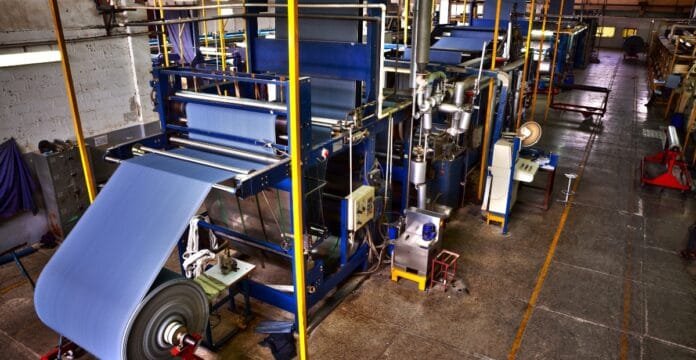Polyester fabric is used for more than just clothes; it is also essential for industrial applications globally. Its use in heavy-duty conveyor belts and protective gear demonstrates how it is one of the leading options for manufacturers and engineers due to its strength, durability, and cost-effectiveness.
Why Polyester Fabric is Ideal for Industrial Use
Polyester is one of the top industrial materials due to its remarkable physical properties. Unlike some natural fibers, polyester has the unique ability to withstand extreme conditions for long periods, and it is also quite affordable.
These are the advantages that polyester has for industries:
- Abrasion resistance: It can endure constant friction, making it perfect for machinery parts like belts and filters.
- Chemical resistance: Unlike other materials, polyester doesn’t easily absorb water and resists many chemicals.
- Dimensional stability: It maintains its original and functional shape even when exposed to heat, pressure, or moisture.
- High tensile strength: Polyester fibers are extremely strong and can withstand heavy loads without being stretched or torn.
- Cost-effective: Large scale industries with big budgets will find the long lifespan and low maintenance of polyester greatly advantageous.
Leading Uses of Polyester Fabric in Industries
1. Conveyor Belts
In industrial conveyor belts, polyester serves as the base material. Its flexibility and high strength as well as resistance to stretching ensures the smooth and reliable movement of goods in factories, warehouses, and mining operations.
2. Filtration Systems
In air, water, and oil filters, polyester’s fine fibers have application. It is suitable for intra-industry filtration for pharmaceuticals, food processing, and wastewater treatment due to its ability to trap particles and resist chemicals.
3. Industrial Ropes and Cords
In construction, shipping, and rescue operations, polyester ropes and cords are utilized for their lightweight yet strong structure.
4. Protective Clothing
Moreover, polyester is often blended with other fibers to create flame-retardant, waterproof, and high-visibility garments for oil rigs and chemical plants. Since workers in these sectors face harsh environments, the garments must also withstand tough wear.
5. Tarpaulins and Covers
Polyester-coated tarps are a convenient choice as they help protect goods, machinery, and construction sites from harsh weather while being lightweight, easy to handle, and long lasting.
6. Industrial Hoses
For high-pressure hoses needed for chemicals, fuel, and water, reinforced polyester fabric is used due to its resistance to tearing and leakage.
7. Geotextiles
In road construction, landscaping, and erosion control, polyester geotextiles are employed to provide soil reinforcement and soil stabilization.
Benefits for Businesses
The use of polyester in industrial applications offers businesses the following benefits:
- Reduced maintenance costs (less downtime for replacements)
- Increased operational efficiency (consistent operational flow)
- Enhanced worker safety (protective clothing and safety gear)
- Sustainability (durable, reusable materials)
Sustainability and Recycling of Industrial Polyester
Modern industries are also concentrating on recycling polyester. The post-consumer PET (plastic bottles) can be transformed into industrial-grade polyester fabric which minimizes waste and carbon footprint.
Final Thoughts
The versatility, durability, and cost efficiency of polyester fabric make it the be backbone of industrial manufacturing. Ranging from conveyor belts to protective clothing, polyester is an unbeatable choice for countless applications.
Industries gain reliable performance and long-term savings while ensuring sustainable operational benefits from using polyester.
FAQs
Why is polyester fabric used in industrial applications?
Polyester is preferred for industrial use because it offers high strength, abrasion resistance, dimensional stability, and resistance to moisture and chemicals, making it ideal for heavy-duty operations.
Is polyester fabric heat-resistant?
Standard polyester can withstand moderate heat, but for high-temperature industrial uses, heat-resistant or flame-retardant polyester blends are recommended.
Can industrial polyester be recycled?
Yes. Many industries now use recycled PET polyester, made from plastic bottles, to reduce environmental impact while maintaining performance.



